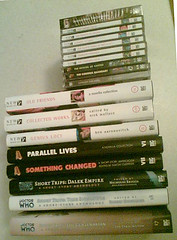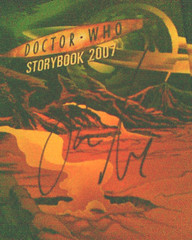The Mission Song is another corker from John le Carre – not exactly a huge departure from his previous work, but a thrilling and intelligent read.
Salvo is a Congolese-born translator of various African languages, living in England and enjoying life – and a wife – at the top. She’s a high-flying journalist, white of the old stock, and gives him everything materially and socially British he could ever hope for.
No sooner does Salvo start cheating on his Mrs than he’s invited to a top secret meeting out in the North Sea. The future of his own country is being decided and they need someone who speaks the right language… But Salvo, who has begun to question the virtues of his English luxury, isn’t sure that what’s on the table is what is best for Goma.
"A good man knows when to sacrifice himself, Brother Michael liked to say. A bad man survives but loses his soul."
John le Carre, The Mission Song, p. 303.
Like a lot of le Carre, the book is at its best pitting one man against the whole system of spies and files and heavies. Salvo’s a richly drawn character with a distinctive narrating voice (and Le Carre’s first black protagonist, or at least the first I’ve got to). He speaks with the precision and good vocabulary of someone to whom English is a second language – and much is made of his never quite being fully assimilated.The rest of the very varied cast is well observed and often funny, Le Carre’s stuff has always worked well in adaptation because he always gives good character actors something to get hold of. Often they leap off the page like Dickens – though that does tend to make his baddies rather comic-book villainous, with nothing to redeem them but their immaculate table manners.
The book is about the rape of Africa’s resources under the cover of humanitarian work. As such, it’s a highly emotive story with plenty to play for. Like The Constant Gardener (which it reminded me of a lot), the officials aren’t too worried about the deaths of a few thousand natives if help sustain the profits.
It paints a pretty nasty picture of institutional abuse abroad, but is also highly critical of the attitude of not only UK foreign policy but of the people of Britain too. Racism is monotonously widespread – Salvo treats it as a given and is not proved otherwise – and much is made of how unnewsworthy Africa’s troubles are.
But le Carre is also good at showing how what happens over there directly impacts on us, and why the fate of Africa is so close to British interests.
"Why else does coltan have place of honour in my head? Go back to Christmas in the Year of Our Lord 2000. Play Station 2, the must-have electronic toy for every rich British kid, is in desperately short supply. Middle-class parents are wringing their hands, and so is Penelope on the front page of her great newspaper: WE SET OUT TO NAME AND SHAME THE GRINCHES WHO STOLE OUR CHRISTMAS! But her anger is misplaced. The shortage is not due to the incompetence of the manufacturers, but to a tidal wave in killing which has engulfed the Eastern Congo, thereby causing a temporary interruption in the supply of coltan."
Ibid., pp. 136-7.
The real trick of the book, then, is to involve us with a character and politics of apparently so little interest to the common Westerner. It certainly makes me feel ashamed of my paltry knowledge of the region, and connects a lot of dots I’d sort of understood.I’m curious how much was influenced by Mark Thatcher’s alleged coup, and by those well-meant Live 8 wristbands that seemed to promise a solution to all the planet’s ills.












